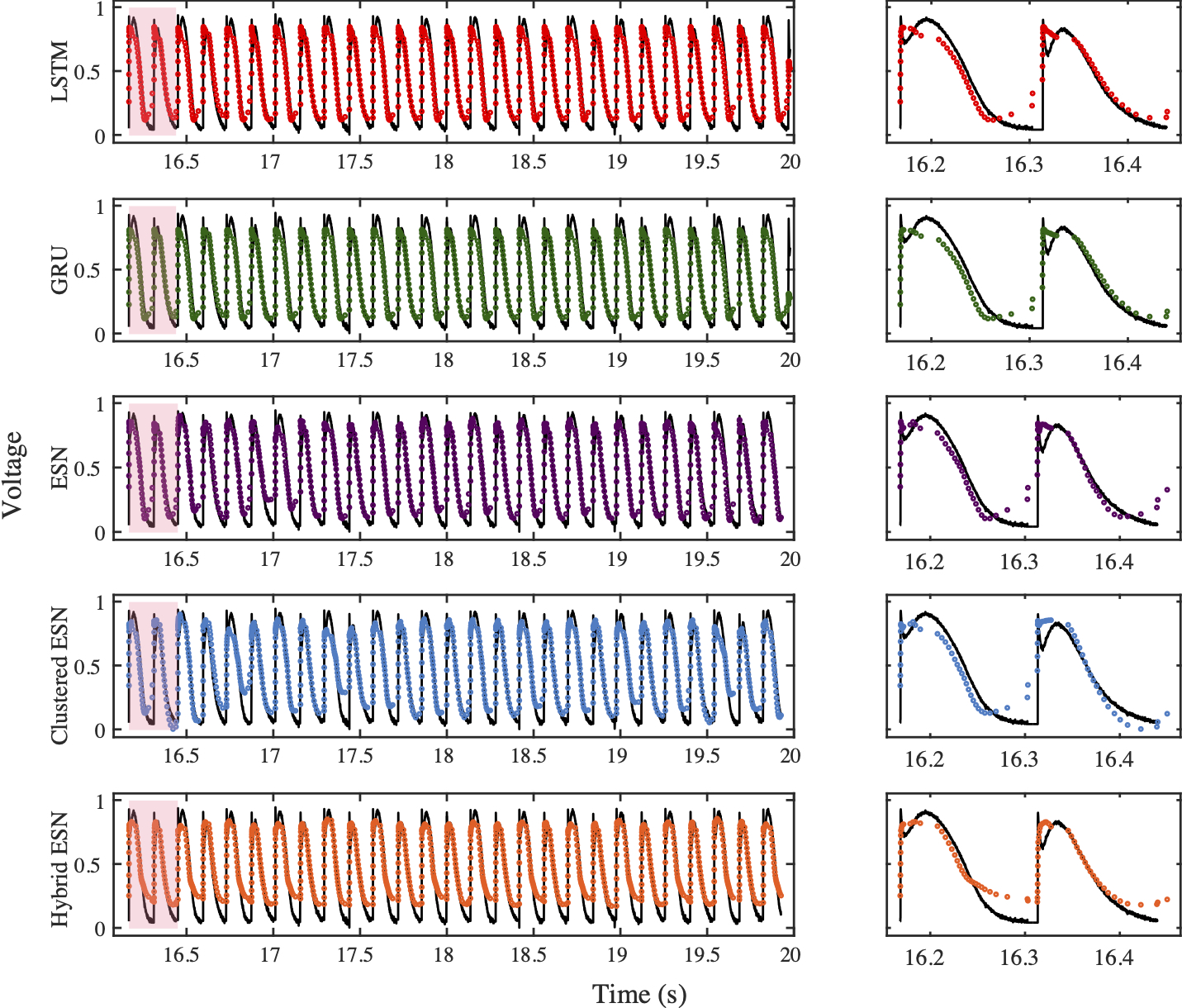Our recent deep learning comparative study has been accepted to be published in "Nonlinear Analysis and Machine Learning in Cardiology" special issue.
Our recent paper, "Long-Time Prediction of Arrhythmic Cardiac Action Potentials Using Recurrent Neural Networks and Reservoir Computing", has been accepted to be published in Frontiers in Physiology, the "Nonlinear Analysis and Machine Learning in Cardiology" special issue.
Front. Physiol. doi: 10.3389/fphys.2021.734178
Abstract
The electrical signals triggering the heart's contraction are governed by nonlinear processes that can produce complex irregular activity, especially during or preceding the onset of cardiac arrhythmias. Forecasts of cardiac voltage time series in such conditions could allow new opportunities for intervention and control but would require efficient computation of highly accurate predictions. Although machine-learning (ML) approaches hold promise for delivering such results, nonlinear time-series forecasting poses significant challenges. In this manuscript, we study the performance of two recurrent neural network (RNN) approaches along with echo state networks (ESNs) from the reservoir computing (RC) paradigm in predicting cardiac voltage data in terms of accuracy, efficiency, and robustness. We show that these ML time-series prediction methods can forecast synthetic and experimental cardiac action potentials for at least 15-20 beats with a high degree of accuracy, with ESNs typically two orders of magnitude faster than RNN approaches for the same network size.


